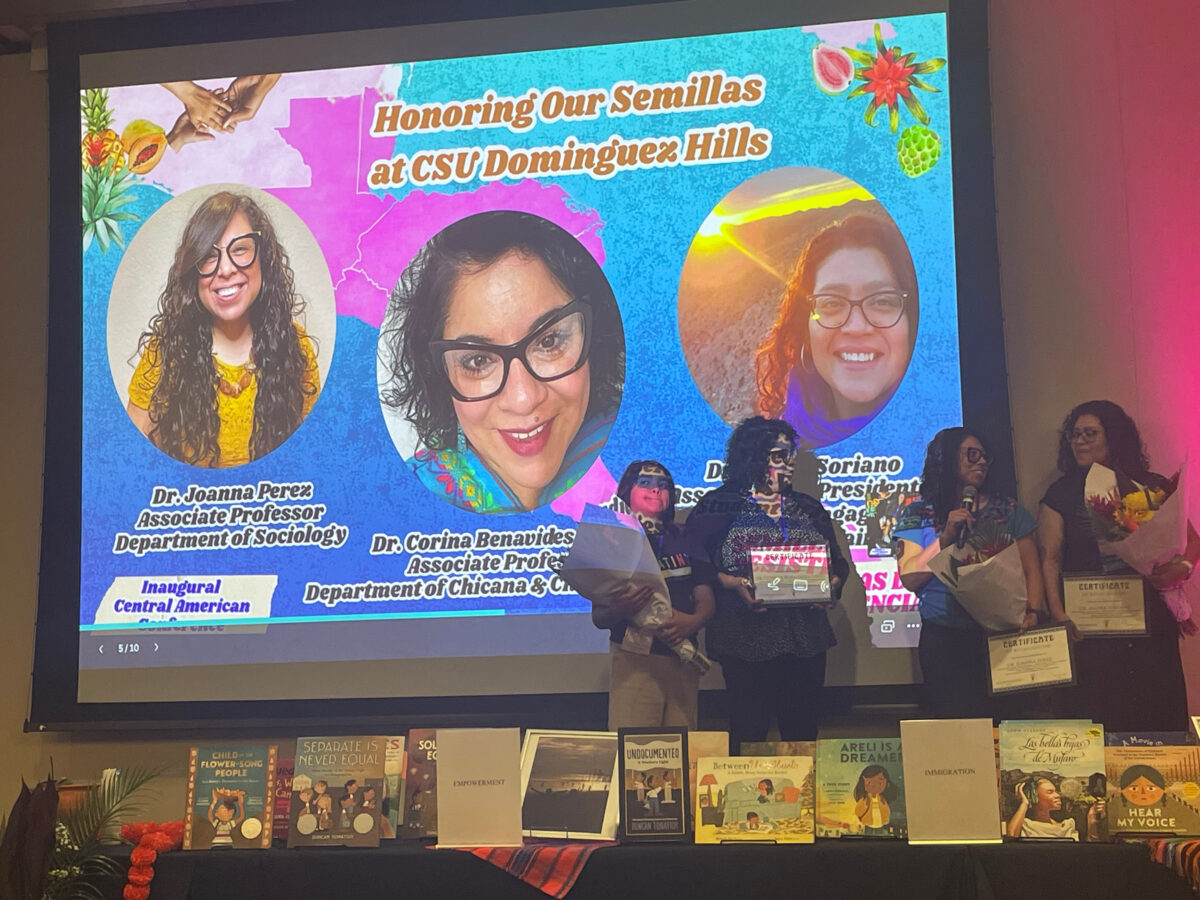Daylong event showcases culture and community through art, scholarship, and performance.
By Archangel Apolonio, Staff Reporter
La Casita hosted its inaugural Central American Conference on Apr. 11. The event brought together artists, scholars, and community members from across the Los Angeles area to celebrate the region’s culture through live performances, academic presentations, art exhibitions, and interactive workshops.
One of the event’s featured guests was the LA-born Salvadoran poet and bestselling author Yesika Salgado, whose work explores topics related to family, culture, and body positivity. As part of her visit, Salgado hosted a book signing where attendees had the opportunity to discuss her work.
The conference was envisioned as a collaborative and inclusive space to explore identity, migration, resistance, and storytelling through a Central American lens. It also marked a continuation of La Casita’s efforts to uplift the Central American community, building on its annual tradition of Central American Week.
La Casita organizers Rony Raymundo and Koatzin Kamil both told The Bulletin that they hope this conference becomes an annual tradition—one that uplifts and amplifies the often overlooked cultural contributions and lived experiences of Central American communities. Raymundo, who became La Casita’s program director in 2022 when it was known as the Latinx Cultural Resource Center (LCRC), said the center has consistently worked to increase visibility on campus.
“When I was brought in as an emergency hire for La Casita—then the LCRC—one of the demands students had written was to bring more visibility,” said Raymundo, La Casita’s program director. “Not just representation, but actual advocacy for the needs of Central American students, a population that has historically been overlooked.”
With campuses like Cal State Northridge offering majors and minors in Central American studies, Raymundo said they hope CSUDH will one day do the same, giving students a chance to explore their roots and the Central American diaspora in the U.S.
“It’s important that at Dominguez Hills we highlight Central American students, faculty, staff, and community members.” Raymundo said. “We know there are pockets of Central American diaspora across LA, but they’re often very small. We’re hopeful that in the next two years, there will be the creation of a Central American Studies minor, and this conference is a step in that direction.”
Kamil, La Casita’s program coordinator, shared a similar vision—one focused on expanding representation beyond dominant narratives in Latinx communities.
“For me, it was important to amplify voices that are often not heard—those that are marginalized or dismissed,” Kamil said. “The work I do aligns with the mission of this conference because it centers other places and identities, creating space for people to reimagine and redefine what Latinidad means.”
Sociology professor Joanna Perez echoed Kamil, emphasizing the role of events like the conference in building community and reshaping narratives.
“Just being in community with folks from different campuses, communities and organizations—it’s powerful,” Perez said. “We’re centering Central American voices, creating spaces to share our stories, and transforming the narratives that have been told about us. It’s about growing together.”
For Toros like junior Ashley Vasquez, the event also offered a space for personal discovery and an opportunity to reconnect with her roots.
“My family is from El Salvador, and it’s really nice to understand their culture and how it impacts me today,” said Vasquez, a liberal arts student. “It’s important because sometimes we don’t place much value on it, but coming to a space like this shows just how much it means to others—and to us.”

